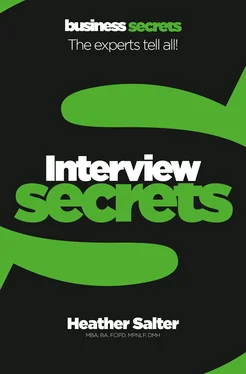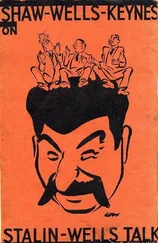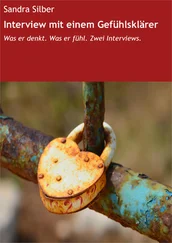Heather Salter - Interview
Здесь есть возможность читать онлайн «Heather Salter - Interview» — ознакомительный отрывок электронной книги совершенно бесплатно, а после прочтения отрывка купить полную версию. В некоторых случаях можно слушать аудио, скачать через торрент в формате fb2 и присутствует краткое содержание. Жанр: unrecognised, на английском языке. Описание произведения, (предисловие) а так же отзывы посетителей доступны на портале библиотеки ЛибКат.
- Название:Interview
- Автор:
- Жанр:
- Год:неизвестен
- ISBN:нет данных
- Рейтинг книги:5 / 5. Голосов: 1
-
Избранное:Добавить в избранное
- Отзывы:
-
Ваша оценка:
- 100
- 1
- 2
- 3
- 4
- 5
Interview: краткое содержание, описание и аннотация
Предлагаем к чтению аннотацию, описание, краткое содержание или предисловие (зависит от того, что написал сам автор книги «Interview»). Если вы не нашли необходимую информацию о книге — напишите в комментариях, мы постараемся отыскать её.
Interview — читать онлайн ознакомительный отрывок
Ниже представлен текст книги, разбитый по страницам. Система сохранения места последней прочитанной страницы, позволяет с удобством читать онлайн бесплатно книгу «Interview», без необходимости каждый раз заново искать на чём Вы остановились. Поставьте закладку, и сможете в любой момент перейти на страницу, на которой закончили чтение.
Интервал:
Закладка:
You may be lucky. If the advert does not attract the exact right candidate the company may consider making small adjustments, but don’t count on it and do be honest at the outset. If you apply for another position with this company at a later date this may count against you.
1.5 Get on the shortlist
Sometimes when we apply for a job we think we are suited for, we don’t even make it to the shortlist for interview and wonder where we went wrong. A behind-the-scenes view of what busy recruiters do to shortlist candidates may well help you to look at where you have gone wrong in the past.
It helps to put yourself ‘in the recruiter’s shoes’ and look at your application from an objective point of view. This may well be difficult at first but you could get a friend to help.
Take the advert or job description that you have received or any details you have about the job you wish to apply for. Highlight the main points that the advert is asking for.
Essential vs desirable. If the advert uses words like “it is essential that the applicant has…” then these will be key shortlisting criteria. If
one minute wonderPut yourself in the recruiter’s shoes and draw up the shortlisting criteria to check yourself against. How good a fit are you? Do you tick all the boxes or not?
the advert says “it is desirable that the applicant has…” then these things aren’t as important, but great if you have them too.
Shortlisting matrix. So take all the “essential” elements asked for, qualifications, location and experience requirements and write them in a list. Now go through and see how many you can tick as being a 100% perfect fit? Now ask yourself the question, how likely would you be to get chosen? If you have all the essential criteria on the list then add on the desirable criteria and see if you meet them also.
The 30-second sift. Recruiters draw up a matrix with columns across the top headed with the key criteria they are looking for and then down the left-hand side they write the names of the applicants. In the first sift the recruiter will skim through the CV in probably less than 30 seconds and either put ticks or crosses in the boxes to show whether you have met that criteria or not. They then go back and highlight those candidates with the most ticks to look at in more detail. The more ticks you have the more likely you are to get shortlisted. So would your CV make it through the 30-second sift?
It will always depend on the competition – if there are people more closely suited to the profile, with more ticks in the boxes, then you just won’t get chosen on this occasion. If there are many applicants making the first sift, then the recruiter will add more criteria and sift again – this is when the “desirable” criteria often get used.
Going through this exercise will help you to be more realistic and more targeted in your approach. Now you have the list make sure you get everything into your CV and letter to show that you have the skills, experience or qualities they are looking for.
If you miss something off your CV, then you won’t get that all important tick in the box.
1.6 Deal with disappointment
The dreaded letter has landed on the doorstep or the email has arrived in the inbox to tell you that you have not been selected for interview. That’s a real blow if you wanted the job and thought you were a good match. What you need to find out now is why, and that’s not always easy.
There are two or three things that you can do now and it really is worth doing this because you want to make sure that you have learned from the experience so that next time you get onto the shortlist.
1 Ask for feedback.You could ring the company up and ask for some feedback as to why you didn’t make it to the shortlist. They don’t have to tell you, but if they do then you have some insight. It could just be that they had so many good CVs they were overwhelmed with choice. In those circumstances they will look for the very best, those whose CVs not only tick all the boxes of what they “must have” but also have that something extra that makes them stand out from the crowd.
“I take rejection as someone blowing a bugle in my ear to wake me up”
Sylvester Stallone, American actor
2 Review yourself.Did you read through the whole of this book and do all the exercises along the way? Did you tailor your CV well to the advert or job description that you received? Did you really show them how you matched their criteria?
3 Get someone else to review your CV.Do you have a friend, colleague or relative who you know will be objective and honest with you? Do you know anyone in your network of family, friends and neighbours who employs people? Ask them to review your CV against the advert or job description and to give you some tips on what you might have missed or could do better.
Be honest with yourself: was this really a good fit for your skills and experience or were you just taking a flyer in the hope that you might be lucky? If you did, just accept that you weren’t lucky this time. Read chapter 7 in the book. Even though you didn’t get to the interview, there are some interesting points about learning, reviewing and planning which may help.
Don’t get angry and throw the letter in the bin. Use your energy to review what you did and see what you can do better next time.
1.7 Get references
As part of your preparation and application for the job at some point you are going to be asked for referees. You need to think about who you are going to ask and who would be the most appropriate for the job that you are applying for.
Most recruiters are probably thinking about the last two positions you held as the people they want to ask for references, but maybe there’s a good reason why you don’t want to give them. Perhaps you left under a cloud, the business no longer exists, or you had a personality clash.
Let’s have a look at the dos and don’ts of references.
1 Personal references.Unless you are specifically asked for personal references don’t give them. I have known many people give best friends, their doctor or a relative as a reference. Unless these people have seen you at work, or have been your boss, they probably won’t have the opinions I am looking for. The only time personal references tend to get used is when the person has just left school, college or university and has not had a previous employer. Even then, surely there was a Saturday job, a holiday job or an evening job?
one minute wonderMake sure that you approach the people you are choosing as referees and let them know about the job you are applying for, so they can expect a letter or a phone call and prepare what they want to say.
2 Business references.Consider the job that you are applying for. Which of your previous managers would be able to comment on your ability and its match to the job that you are applying for? Choose the best fit. Ask them first before you put them forward as a matter of courtesy. Make sure you have their up to date contact details so it makes it easier for the recruiter to contact them.
3 ‘To Whom it May Concern’ references.As an HR person I tend not to accept any of these. How do I know that you didn’t write the reference yourself? With the ability to copy and paste logos from the Internet, you could make your own headed paper and forge the reference. I would always check the source of the reference by contacting the referee.
If you aren’t using your last two employers as referees, be prepared to explain why not at interview.
Читать дальшеИнтервал:
Закладка:
Похожие книги на «Interview»
Представляем Вашему вниманию похожие книги на «Interview» списком для выбора. Мы отобрали схожую по названию и смыслу литературу в надежде предоставить читателям больше вариантов отыскать новые, интересные, ещё непрочитанные произведения.
Обсуждение, отзывы о книге «Interview» и просто собственные мнения читателей. Оставьте ваши комментарии, напишите, что Вы думаете о произведении, его смысле или главных героях. Укажите что конкретно понравилось, а что нет, и почему Вы так считаете.












